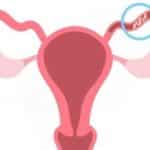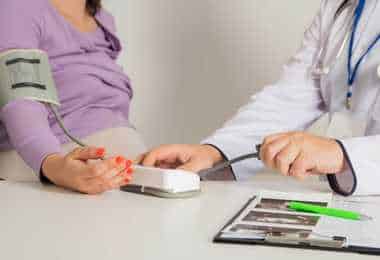
Hydrosalpinx – Fluid Accumulation in the Fallopian Tubes and Risks
January 30, 2024
Surgical Treatment Options for Fibroids
January 30, 2024
Hydrosalpinx – Fluid Accumulation in the Fallopian Tubes and Risks
January 30, 2024
Surgical Treatment Options for Fibroids
January 30, 2024
Preeclampsia - Pregnancy Intoxication Diagnosis and Treatment
Preeclampsia, also known as pregnancy Intoxication, is a risky condition characterized by high blood pressure (hypertension) and protein leakage in the urine, which usually occurs after the 20th week of pregnancy in pregnant women who have not had high blood pressure before, and poses serious risks to the mother and baby. Mother and baby who experience pregnancy Intoxication carry significant health risks. Due to high blood pressure, serious complications can develop in various organs of the mother, such as the brain, kidney and liver. In case of pregnancy intoxication, due to the inability of the placenta to settle sufficiently on the uterine wall, developmental delay, severe obstacle and severe pictures that can lead to pregnancy loss may occur for the baby who cannot meet his basic needs.
Causes of Pregnancy Intoxication
Although preeclampsia is a long-known pregnancy disorder, the factors that cause the development of the syndrome have not been fully revealed. However, studies support that the disease originates from the placenta.
It is known that due to the inability of the placenta, which provides nutrition and oxygen to the baby, to settle normally in the uterine wall, anomalies that develop in the vascular structure of the uterine wall at the point where the placenta settles and the spread of many substances to the systemic circulation of the mother from here damage the vessels and organs.
Symptoms of Pregnancy Intoxication
Symptoms of pregnancy intoxication include an increase in blood pressure of a mother with normal blood pressure before pregnancy, protein leakage in the urine, kidney dysfunction, increase in liver enzymes, decrease in the amount of platelets in the blood, shortness of breath due to fluid accumulation in the lungs, dizziness, severe headache, blurred vision, light sensitivity, temporary vision loss, severe abdominal pain, nausea and vomiting.
Risks of Pregnancy Intoxication
Preeclampsia can damage the mother's vessels, causing fluid leakage out of the vein and causing problems in the entire system. Leakage of fluid out of the brain can cause oedema in the brain, causing severe headache, vision problems, fainting, loss of consciousness, and eclampsia. It can lead to oedema in the lungs and liver and result in life-threatening risks for the mother. Kidney function may deteriorate and the problem of kidney failure may occur.

Image-1: Pregnancy intoxication (preeclampsia)
Preeclampsia poses life-threatening risks to the baby. Due to the inability of the placenta to settle on the uterine wall sufficiently, the baby's needs will not be adequately met. Thus, it can cause problems such as developmental retardation, decreased amniotic fluid volume, lack of oxygen, severe disability and loss of the baby.
Pregnancy Intoxication Risk Factors
Risk groups that are likely to experience preeclampsia during pregnancy should be very careful and follow up with a physician regularly in order not to experience this problem or to control it.
Those with connective tissue diseases, preeclampsia development in previous pregnancy, chronic hypertension, first pregnancy, multiple pregnancy, obesity, diabetes, kidney disease, lupus erythematosus should be cautious against increased risk of developing preeclampsia during pregnancy.
High blood pressure during pregnancy may not always lead to preeclampsia. High blood pressure may also be present before pregnancy. However, in order to be considered as preeclampsia, a higher-than-normal blood pressure must be seen after the 20th week of pregnancy and must be accompanied by protein escape to the urine.
Diagnosis and Treatment of Pregnancy Intoxication
In the diagnosis of preeclampsia, the diagnosis of preeclampsia is made in the presence of one or more findings such as protein leakage in the urine, kidney dysfunction, impaired liver function, fluid accumulation in the lungs, and oedema in the brain, accompanied by an increase in blood pressure in pregnant women with normal blood pressure. Tests such as blood test, urinalysis and ultrasound are used in diagnosis.
Pregnant women diagnosed with preeclampsia should be followed closely. The definitive solution to preeclampsia is childbirth, but if birth cannot be considered as a treatment option from the baby's point of view, drug therapy will be resorted to. As long as it does not pose a life-threatening risk to the mother, time will be saved until the baby completes its development and the mother will be followed closely.

